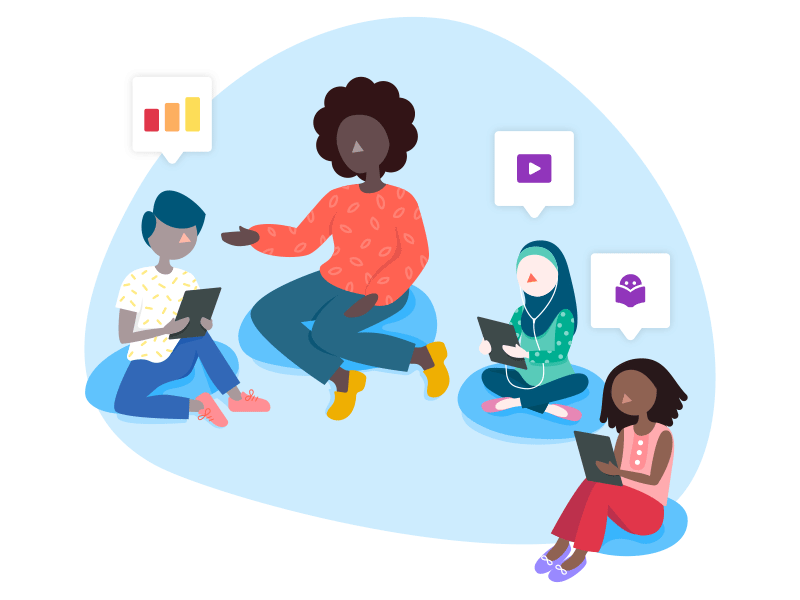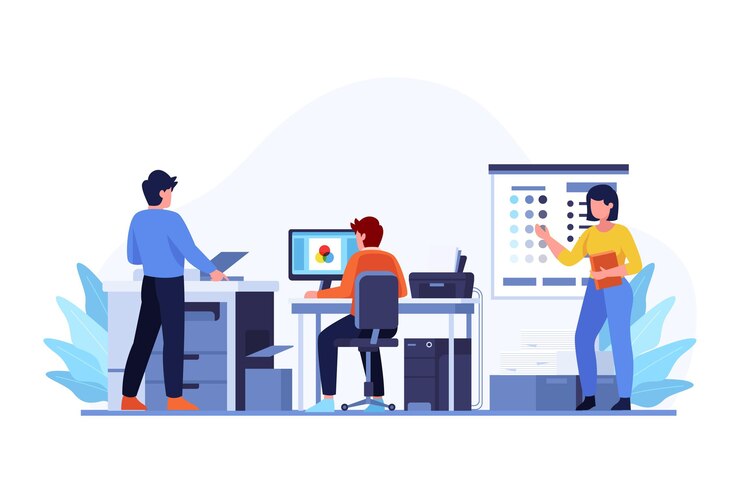Asha Computer Education
ஆஷா வழி கணினி கல்வி

ஆஷா வழி கணினி கல்வி or Asha Computer Education (ACE) is scalable initiative to take Asha’s way of teaching computer science and our curriculum to all the students in Tamilnadu. As a pilot Asha is taking about 50 teachers a year from Government Schools and training them to teach a 2 – year curriculum for Computer Science. These teachers then teach one class of students between 6th and 9th std this curriculum. During this time, Asha trainers will visit the school once a month or more to assist the teachers in implementing the curriculum.
Where available the infrastructure at the schools is used for teaching. If the school doesn’t have the necessary infrastructure, we provide three laptops to the school. This is in addition to one laptop we provide to each teacher. At the end of the academic year, like all our other programs, the children will work on a detailed project work for 8 to 10 weeks. The best projects will be featured in an ACE Impressions event.
This is entirely funded by Amazon under their Amazon Future Engineer program.
ACE
Curriculum and Pedagogy
Two year CS curriculum that is described in the CS Curriculum section is used for this program. Each lesson will involve the children doing something on the computers. The children will learn by doing things on the computers and not just writing something down in their notebooks.
The infrastructure will pose a challenge and we will continue augmenting it as we move forward. The first year of the curriculum will focus on Digital Literacy and making the children comfortable in computers and second year of the curriculum will teach them programming. Each year will have 30 lessons which should be completed by January. Then the children will work in teams on a detailed project for about 8 to 10 weeks.
At the end of the year the children will be certified based on the project work as well as an assessment on computers conducted rigorously.

Teacher Training
Rather than bunching up the training sessions during a couple of times, we spread it out through the whole year. The intent will be to provide training to the teachers for the next 4 to 6 lessons that they will be teaching the students in their schools.
This fits in well with the teacher as “Lead Learner” model of teaching (as opposed to teacher as “Instructor” or “Facilitator”). In the Lead Learner model, the teacher is not expected to be an expert in the topics they are teaching the students. Rather they are also learning the topics along with the students but just a little ahead of them to be able to guide them. This work well when the teacher do not know the subject ahead of time and also when the topics themselves are evolving and open ended. For eg. if you are teaching the children how to use various AI tools, which are themselves changing every day, this approach works
ACE
In Practice
On Oct 19th 2023 the ACE program was inaugurated with 52 teachers from Thiruvallur District signing up to implement this program in their schools. The second version of the program started on Aug 9th. This time 53 teachers signed up from 4 districts: Thiruvallur, Thoothukudi, Villupuram and Thiruvannamalai.

Teachers
The teachers who have signed up are all from schools Asha is already working with through the Explore program. Our trainers have been visiting these schools and providing basic exposure to Computer Science to the students there. We selected teachers who are keen to learn Computer Science and were interested in what Asha was doing. Most of the teachers do not come with much knowledge of computer science and learn most of this from our training sessions. Some who come with a good knowledge of Computer Science (like part-time Computer Science teachers) learn how to teach Computer Science in a different way.

Infrastructure
We equipped each teacher with a laptop. They were encourage to take this home and use for other purposes as well to help develop comfort with using computers. Some half the schools we had selected had High-tech labs setup by the government. The rest of the schools were given 3 laptops each. But even in the schools with high-tech labs, in some cases the labs were not functional and in some other cases the labs were heavily used by the school for other purposes. Therefore we had to equip them with the laptops as well. Other than the ACEv1 teachers who received new laptops, all the other laptops given were used laptops. Asha continues maintaining these laptops with its trainers and system engineers.

Progress
There have been multiple training sessions that have been help for these teachers under both ACEv1 and ACEv2 programs. The teachers have all been teaching one class of children in their schools. The children are very enthusiastic about the program. The teachers have also been very enthusiastic. Asha has built a tracker tool for the teachers to report the progress of the lessons and for us to get a bird’s eye view of how the program is progressing. It is progressing as hoped for.

Challenges
A few challenges that have come up. The first is that teachers move to different schools. When our trained teachers move to other schools, they have been proactive in bringing another teacher for the training. This also demonstrates their commitment to this program. We have not had to stop the program in any of the 105 schools. Another problem has been with the infrastructure. Many of the schools are working with just the teachers laptop and 3 more we have given to the school. When one or two of them develops problems, the program was severely diminished. We are addressing this to the extent we can. The schools with High-tech labs, face another problem. The government has been placing a lot more demands on the High-tech labs in the form of online assessments for the students, English classes etc.
These have made it difficult for them to get time in these labs. Many of them are coming back to Asha asking for laptops for the schools. We have been providing as many as we can. Another problem is that the BT teachers (teachers who teach a subject for classes 6 to 10) often become very busy with class 10 students after January which makes it difficult for them to implement our program. They have also at times taken the help of other teachers in their school. These are all challenges that we are continuing to understand and work through. These will help us be prepared for the much more massive challenges that will face us when we take this program to the entire state.
